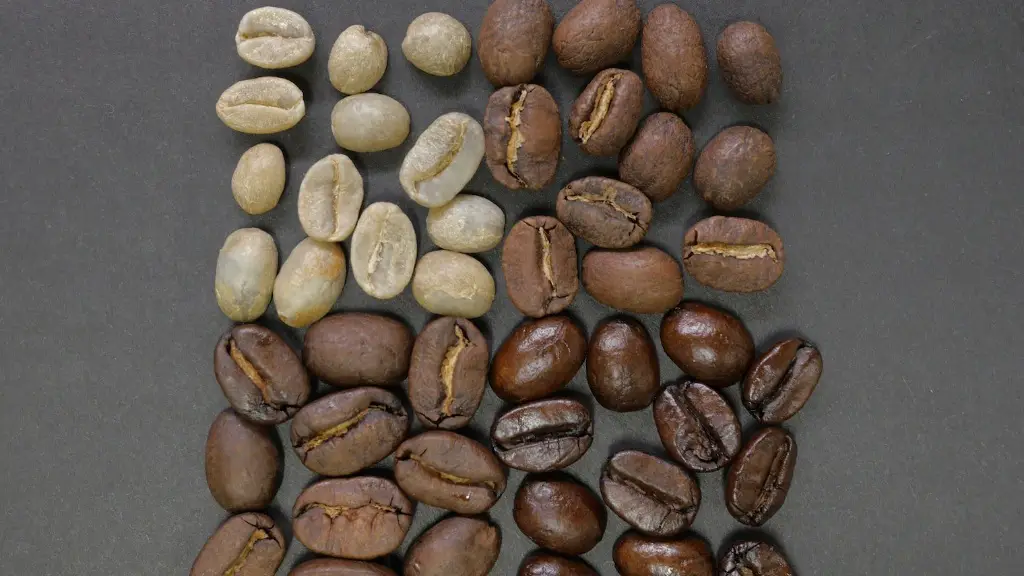Can I Drink Coffee With Antidepressants?
It is not uncommon for individuals to question if coffee consumption is safe for those taking antidepressants. It is an important topic to consider as caffeine can increase blood pressure, heart rate, cause anxiety and insomnia. Consuming large amounts of caffeine combined with medications has serious potential side effects that are usually not discussed when people are advised to cut down or avoid caffeine.
Coffee and antidepressant medications can interact in different ways. Studies have found that high doses of caffeine can lead to a decrease in the effectiveness of antidepressants. The research shows that the severity of the interaction varies depending on the dose of caffeine and type of antidepressant taken.
The American Medical Association (AMA) warns that although caffeine is not contraindicated for individuals taking antidepressants, consuming large amounts of caffeine is not recommended as large amounts of caffeine can increase the risk of symptoms of anxiety and insomnia. This can be particularly problematic in people who are already taking antidepressants as these medications can amplify the effects of caffeine.
Doctors usually advise that patients with depression avoid caffeine as it can worsen anxiety symptoms, which could lead to a decrease in the effectiveness of the antidepressant medication. Recent studies have found that coffee consumption near the time of taking antidepressants may increase the risk of side effects such as increased heart rate, increased blood pressure and increased anxiety.
It is recommended that those taking antidepressants should limit or avoid coffee consumption. If you are taking antidepressants and unable to stop drinking coffee, it is important to be aware of the potential risk of side effects and talk to your doctor about it. It is also important to be aware that some medications contain caffeine so it is best to check with your doctor before consuming any medication with caffeine.
Caffeine and Sleep
Many individuals depend on coffee to stay awake throughout the day, especially those taking antidepressants. However, consuming caffeine late in the day can affect sleep quality and lead to increased levels of alertness. This can be detrimental to individuals who have difficulty sleeping. When combined with medications, it can increase the risk of developing insomnia, agitation, and a worsening of depression symptoms.
Studies have shown that consuming caffeine late in the day can lead to insomnia, restlessness, and difficulty concentrating. Moreover, individuals who consume caffeine regularly can become tolerant of it, further increasing their risk of becoming too alert to sleep properly. It is important to ensure that individuals on antidepressants are mindful of their caffeine intake with respect to how it may affect their sleep cycle and ability to recover.
One of the most effective strategies to reduce the risk of insomnia and agitation is to avoid consuming caffeine late in the day. Doing so will ensure that the body has enough time to wind down before going to sleep and will also allow for better relaxation. It is also recommended to avoid consuming caffeine within six hours of going to bed to reduce the risk of experiencing a disturbed night’s sleep.
Caffeine Sources Other Than Coffee
Individuals on antidepressants and those who are trying to reduce their caffeine intake should be aware that caffeine is in many sources other than coffee. In addition to teas, chocolate and certain energy drinks, many soft drinks contain high amounts of caffeine.
Caffeine is also found in many medications and supplements. Pain killers, weight loss pills and some vitamins contain caffeine, so it is important to read labels and ingredient lists before taking any medication. Patients taking medications are advised to consult with their doctor or pharmacist to ensure they are aware of the potential risks associated with taking medications with caffeine.
It is also important to be aware of the potential side effects of consuming caffeine. Consuming caffeine can increase alertness, focus, and energy, but it can also lead to headaches, nervousness, irritability, and increased heart rate and blood pressure.
Finally, it is wise to be aware that caffeine can increase anxiety and irritability, which is potentially problematic for those suffering from depression. Individuals should be mindful of their caffeine intake as it may affect their mood and concentration.
Effects Of Long-term Caffeine Consumption
Long-term caffeine consumption may increase the risk of anxiety, depression, and even dependence. When the body is used to ingesting large amounts of caffeine it can develop a tolerance for the drug and require more for the same effect. This can cause people to depend on caffeinated products without even knowing it and limit their ability to control their caffeine intake.
Studies have also found that long-term, heavy caffeine use can lead to increased feelings of anxiety and depression. Some studies suggest that individuals who consume high amounts of caffeine may be more prone to depression than those who do not. Additionally, heavy caffeine use has also been linked to an increased risk of addiction.
It is important to be aware that caffeine intake can put extra stress on the body. Too much caffeine can increase stress levels and cause insomnia, restlessness and irritability. Thus, it is recommended that individuals with depression should limit or avoid caffeine consumption.
Amount Of Caffeine To Consume When Taking Antidepressants
When taking antidepressants it is usually advised to limit caffeine intake as it can increase the risk of experiencing side effects. In general, it is recommended to limit caffeine intake to no more than 300mg per day for individuals taking antidepressants. However, it is important to note that this number may vary depending on the individual and the type of antidepressant.
For people who are unable to reduce their caffeine intake, the best way to limit the risk of side effects is by spacing out the doses of caffeine throughout the day. Taking caffeine in smaller doses throughout the day is better than consuming a large amount in one sitting. It is also important to ensure that the last dose is taken several hours before bedtime to reduce the risk of insomnia.
Caffeine And Depression
Caffeine consumption can significantly affect mood and concentration levels. Long-term studies have found that individuals who consumed high amounts of caffeine experienced more negative moods and had a higher risk of depression than those who consumed less. It is important to be aware of this when taking antidepressants as high levels of caffeine can worsen the effects of the depression.
Furthermore, caffeine can affect brain chemistry and neurotransmitter production. It is thought that caffeine consumption can lead to an imbalance in the levels of serotonin, dopamine, and norepinephrine, which can lead to an increase in symptoms of depression. Therefore, it is important to limit caffeine intake when taking antidepressants.
Side Effects of Caffeine On Antidepressants
Caffeine can increase the risk of side effects when taking antidepressants. Some of these side effects can include increased anxiety, irritability, difficulty sleeping, restlessness and a fast heart rate. These side effects can worsen the symptoms of depression and limit the effectiveness of the antidepressant medications.
Moreover, caffeine can interact with certain antidepressant medications and lead to an increased risk of experiencing side effects. It is recommended to speak with your doctor if you have any questions or concerns about the effects of caffeine on your antidepressants.
Conclusion
In summary, consuming large amounts of caffeine can lead to an increased risk of side effects when taking antidepressants. It is recommended to limit caffeine intake and avoid consuming caffeine late in the day. People taking antidepressants should be mindful of the potential risks and talk to their doctor before consuming caffeine.





